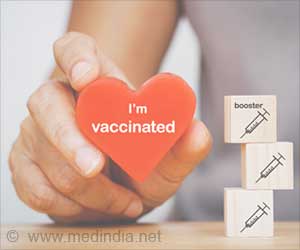
COVID-19 Vaccine Acceptance Increased Worldwide
However, vaccine acceptance decreased in eight countries and almost one in eight vaccinated respondents, particularly younger men and women, were hesitant about receiving a booster dose, according to the study published in the journal
.
Worryingly, almost one in eight (12.1 percent) vaccinated respondents were hesitant about booster doses. This hesitancy was higher among the younger age groups (18-29).
Advertisement
Led by the Barcelona Institute for Global Health (ISGlobal) andThe City University of New York’s Graduate School of Public Health and Health Policy, the study underlines a wide variability among countries and the need for tailored communication strategies in addressing vaccine hesitancy.
Why is COVID-19 Booster Dose Necessary
“The pandemic is not over, and authorities must urgently address vaccine hesitancy and resistance as part of their COVID-19 prevention and mitigation strategy,” says Jeffrey V. Lazarus, Head of the Health Systems Research Group at ISGlobal.
The 23 highly-populated countries that were hit hard by the pandemic part of the study were Brazil, Canada, China, Ecuador, France, Germany, Ghana, India, Italy, Kenya, Mexico, Nigeria, Peru, Poland, Russia, Singapore, South Africa, South Korea, Spain, Sweden, Turkey, the UK and the US.
The data reported here correspond to the third survey conducted between June and July 2022.
Of the 23,000 respondents, 79.1 percent were willing to accept vaccination. The finding represented an increase of 5.2 percent from June 2021.
However, eight countries observed increased hesitancy (from 1 percent in the UK to 21.1 percent in South Africa).
“We must remain vigilant in tracking these data, containing COVID-19 variants and addressing hesitancy, which may challenge future routine COVID-19 immunization programs,” said Ayman El-Mohandes, senior author.
The survey also provides new information on COVID-19 treatments received.
Globally, ivermectin was taken with the same frequency as other approved medications, even though the WHO and other agencies do not recommend its use to prevent or treat COVID-19.
Also, almost 4 percent respondents reported paying less attention to new COVID-19 information than before and having less support for vaccine mandates.
“Our results show that public health strategies to enhance booster coverage will need to be more sophisticated and adaptable for each setting and target population,” says Lazarus.
Source: IANS
Stay connected with us on social media platform for instant update click here to join our Twitter, & Facebook
We are now on Telegram. Click here to join our channel (@TechiUpdate) and stay updated with the latest Technology headlines.
For all the latest Health News Click Here
For the latest news and updates, follow us on Google News.

